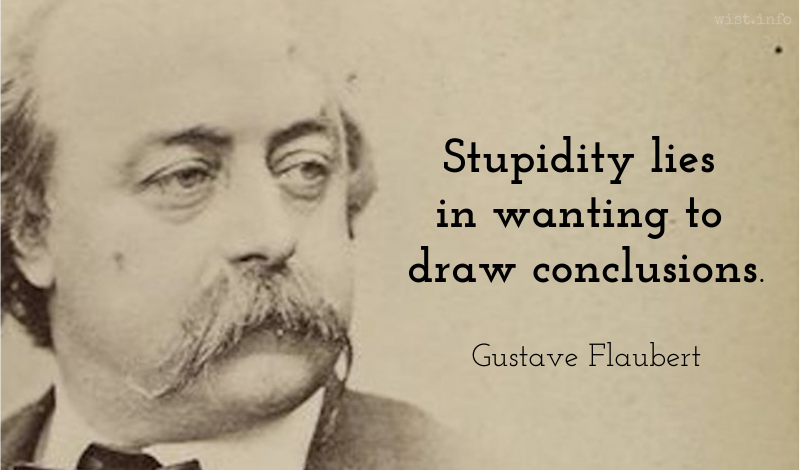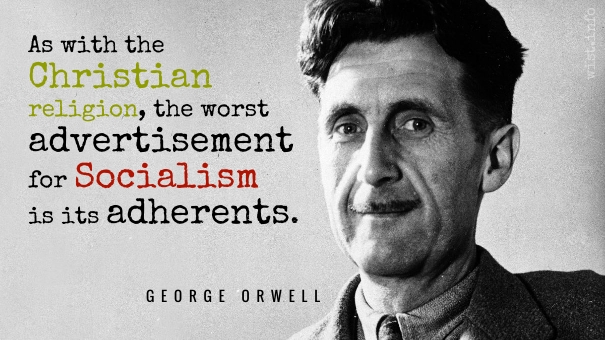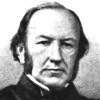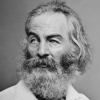For with the truth, all the given facts harmonize; but with what is false, the truth soon hits a wrong note.
[τῷ μὲν γὰρ ἀληθεῖ πάντα συνᾴδει τὰ ὑπάρχοντα, τῷ δὲ ψευδεῖ ταχὺ διαφωνεῖ τἀληθές.]
Aristotle (384-322 BC) Greek philosopher
Nicomachean Ethics [Ἠθικὰ Νικομάχεια], Book 1, ch. 8 (1.8, 1098b.11) (c. 325 BC) [tr. Bartlett/Collins (2011)]
(Source)
(Source (Greek)). Alternate translations:
With what is true all things which really are are in harmony, but with that which is false the true very soon jars.
[tr. Chase (1847), ch. 6]
For with a true theory all facts agree, while with what is false truth is quickly found to conflict.
[tr. Williams (1869)]
For while all, experience harmonizes with the truth, it is never long before truth clashes with falsehood.
[tr. Welldon (1892)]
For all experience harmonizes with a true principle, but a false one is soon found to be incompatible with the facts.
[tr. Peters (1893)]
For with a true view all the data harmonize, but with a false one the facts soon clash.
[tr. Ross (1908)]
For if a proposition be true, all the facts harmonize with it, but if it is false, it is quickly seen to be discordant with them.
[tr. Rackham (1934)]
For all the data are in tune with a true view, whereas they soon clash with a false one.
[tr. Reeve (1948)]
For all things which belong to it are in harmony with a true [definition of it], but truth is soon bound to clash with a false [definition of it].
[tr. Apostle (1975)]
Because if a statement is true all the data are in harmony with it, while if it is false they soon reveal a discrepancy.
[tr. Thomson/Tredennick (1976)]
For all the data harmonize with the truth, but soon clash with falsity.
[tr. Crisp (2000)]
Quotations about:
theory
Note not all quotations have been tagged, so Search may find additional quotes on this topic.
Caution in handling generally accepted opinions that claim to explain whole trends of history is especially important for the historian of modern times, because the last century has produced an abundance of ideologies that pretend to be keys to history but are actually nothing but desperate efforts to escape responsibility.
Hannah Arendt (1906-1975) German-American philosopher, political theorist
The Origins of Totalitarianism, Part 1, ch. 1 “Antisemitism as an Outrage to Common Sense” (1951)
(Source)
A fact is a simple statement that everyone believes. It is innocent, unless found guilty. A hypothesis is a novel suggestion that no one wants to believe. It is guilty, until found effective.
Edward Teller (1908-2003) Hungarian-American theoretical physicist
Conversations on the Dark Secrets of Physics, ch. 5 (1991) [with Wendy Teller, Wilson Talley]
(Source)
There is nobody, in the commonwealth of learning, who does not profess himself a lover of truth, — and there is not a rational creature, that would not take it amiss, to be thought otherwise of. And yet, for all this, one may truly say, there are very few lovers of truth, for truth-sake, even amongst those who persuade themselves that they are so. How a man may know, whether he be so, in earnest, is worth inquiry; and I think, there is this one unerring mark of it, viz. the not entertaining any proposition with greater assurance than the proofs it is built on will warrant. Whoever goes beyond this measure of assent, it is plain, receives not truth in the love of it, loves not truth for truth-sake, but for some other by-end.
John Locke (1632-1704) English philosopher
An Essay Concerning Human Understanding, Book 4 “Of Knowledge and Opinion,” ch. 19 “Of Enthusiasm,” sec. 1 “Love of truth necessary” (1689)
(Source)
The rule which should guide us in such cases is simple and obvious enough: that the aggregate testimony of our neighbours is subject to the same conditions as the testimony of any one of them. Namely, we have no right to believe a thing true because everybody says so unless there are good grounds for believing that some one person at least has the means of knowing what is true, and is speaking the truth so far as he knows it. However many nations and generations of men are brought into the witness-box, they cannot testify to anything which they do not know. Every man who has accepted the statement from somebody else, without himself testing and verifying it, is out of court; his word is worth nothing at all. And when we get back at last to the true birth and beginning of the statement, two serious questions must be disposed of in regard to him who first made it: was he mistaken in thinking that he knew about this matter, or was he lying?
William Kingdon Clifford (1845-1879) English mathematician and philosopher
“The Ethics of Belief,” Part 2 “The Weight of Authority,” Contemporary Review (Jan 1877)
(Source)
Stupidity lies in wanting to draw conclusions.
[L’ineptie consiste à vouloir conclure. […] Oui, la bêtise consiste à vouloir conclure.]
Gustave Flaubert (1821-1880) French writer, novelist
Letter to Louis Bouilhet (4 Sep 1850)
(Source)
The phrase is used twice in the letter. The initial phrase is usually translated to "foolishness" or "folly," the second to "stupidity."
Details that could throw doubt on your interpretation must be given, if you know them. You must do the best you can — if you know anything at all wrong, or possibly wrong — to explain it. If you make a theory, for example, and advertise it, or put it out, then you must also put down all the facts that disagree with it, as well as those that agree with it. There is also a more subtle problem. When you have put a lot of ideas together to make an elaborate theory, you want to make sure, when explaining what it fits, that those things it fits are not just the things that gave you the idea for the theory; but that the finished theory makes something else come out right, in addition. In summary, the idea is to try to give all of the information to help others to judge the value of your contribution; not just the information that leads to judgment in one particular direction or another.
Richard Feynman (1918-1988) American physicist
“Cargo Cult Science,” commencement address, California Institute of Technology (1974)
(Source)
So we have to make guesses in order to give any utility at all to science. In order to avoid simply describing experiments that have been done, we have to propose laws beyond their observed range. There is nothing wrong with that, despite the fact that it makes science uncertain. If you thought before that science was certain — well, that is just an error on your part.
Richard Feynman (1918-1988) American physicist
The Character of Physical Law, ch. 3 “The Great Conservation Principles” (1965)
(Source)
When my information changes, I alter my conclusions. What do you do, sir?
John Maynard Keynes (1883-1946) English economist
(Attributed)
Reply to a criticism of having changed his position on monetary policy. Quoted in Paul Samuelson, "The Keynes Centenary" The Economist, Vol. 287 (1983), but possibly apocryphal (see here).
Variants:
- "When events change, I change my mind. What do you do?"
- "When the facts change, I change my mind. What do you do, sir?"
- "When someone persuades me that I am wrong, I change my mind. What do you do?"
No facts are to me sacred; none are profane; I simply experiment, an endless seeker, with no Past at my back.
Ralph Waldo Emerson (1803-1882) American essayist, lecturer, poet
“Circles,” Essays: First Series (1841)
(Source)
Was I to believe him in earnest in his intention to penetrate to the centre of this massive globe? Had I been listening to the mad speculations of a lunatic, or to the scientific conclusions of a lofty genius? Where did truth stop? Where did error begin?
Jules Verne (1828-1905) French novelist, poet, playwright
Journey to the Center of the Earth, ch. 7 “A Woman’s Courage” (1864) [tr. Malleson]
(Source)
Theories are only verified hypotheses, verified by more or less numerous facts. Those verified by the most facts are the best, but even then they are never final, never to be absolutely believed.
When we meet a fact which contradicts a prevailing theory, we must accept the fact and abandon the theory, even when the theory is supported by great names and generally accepted.
I suppose the process of acceptance will pass through the usual four stages:
1. This is worthless nonsense,
2. This is an interesting, but perverse, point of view,
3. This is true, but quite unimportant,
4. I always said so.J.B.S. Haldane (1892-1964) English geneticist [John Burden Sanderson Haldane]
“The Truth About Death,” Journal of Genetics, Vol. 58, page 464 (1963)
(Source)
Review of The Chester Beatty Research Institute Serially Abridged Life Tables, England and Wales, 1841-1960. Referring to the stages a scientific theory goes through.
I like the scientific spirit — the holding off, the being sure but not too sure, the willingness to surrender ideas when the evidence is against them: this is ultimately fine — it always keeps the way beyond open.
It is man’s intelligence that makes him so often behave more stupidly than the beasts. … Man is impelled to invent theories to account for what happens in the world. Unfortunately, he is not quite intelligent enough, in most cases, to find correct explanations. So that when he acts on his theories, he behaves very often like a lunatic. Thus, no animal is clever enough, when there is a drought, to imagine that the rain is being withheld by evil spirits, or as punishment for its transgressions. Therefore you never see animals going through the absurd and often horrible fooleries of magic and religion. No horse, for example would kill one of its foals to make the wind change direction. Dogs do not ritually urinate in the hope of persuading heaven to do the same and send down rain. Asses do not bray a liturgy to cloudless skies. Nor do cats attempt, by abstinence from cat’s meat, to wheedle the feline spirits into benevolence. Only man behaves with such gratuitous folly. It is the price he has to pay for being intelligent but not, as yet, intelligent enough.
[Arguments] seem unable to influence the masses in the direction of what is noble and good. For the masses naturally obey fear, not shame, and abstain from shameful acts because of the punishments associated with them, not because they are disgraceful.
[τοὺς δὲ πολλοὺς ἀδυνατεῖν πρὸς καλοκαγαθίαν προτρέψασθαι: οὐ γὰρ πεφύκασιν αἰδοῖ πειθαρχεῖν ἀλλὰ φόβῳ, οὐδ᾽ ἀπέχεσθαι τῶν φαύλων διὰ τὸ αἰσχρὸν ἀλλὰ διὰ τὰς τιμωρίας]
Aristotle (384-322 BC) Greek philosopher
Nicomachean Ethics [Ἠθικὰ Νικομάχεια], Book 10, ch. 9 (10.9.3-4) / 1179b.10ff (c. 325 BC) [tr. Crisp (2000)]
(Source)
(Source (Greek)). Alternate translations:
[Talking and writing] plainly are powerless to guide the mass of men to Virtue and goodness; because it is not their nature to be amenable to a sense of shame but only to fear; nor to abstain from what is low and mean because it is disgraceful to do it but because of the punishment attached to it
[tr. Chase (1847), ch. 8]
But, for most men, mere precept is powerless to dispose them to noble conduct. For their nature is such, that they are not ruled by a proper sense of shame, but only by fear, and do not abstain from vice because of the disgrace which attaches to it, but because of the punishment which its practice involves.
[tr. Williams (1869)]
[Theories] are impotent to inspire the mass of men to chivalrous action; for it is not the nature of such men to obey honour but terror, nor to abstain from evil for fear of disgrace but for fear of punishment.
[tr. Welldon (1892)]
Yet [theories] are powerless to turn the mass of men to goodness. For the generality of men are naturally apt to be swayed by fear rather than by reverence, and to refrain from evil rather because of the punishment that it brings than because of its own foulness.
[tr. Peters (1893)]
[Arguments] are not able to encourage the many to nobility and goodness. For these do not by nature obey the sense of shame, but only fear, and do not abstain from bad acts because of their baseness but through fear of punishment.
[tr. Ross (1908)]
Yet [theories] are powerless to stimulate the mass of mankind to moral nobility. For it is the nature of the many to be amenable to fear but not to a sense of honor, and to abstain from evil not because of its baseness but because of the penalties it entails.
[tr. Rackham (1934)]
[Arguments are] unable to encourage ordinary people toward noble-goodness. For ordinary people naturally obey not shame but fear and abstain from base things not because of their shamefulness but because of the sanctions involved.
[tr. Reeve (1948)]
[Arguments] cannot exhort ordinary men to do good and noble deeds, for it is the nature of these men to obey not a sense of shame but fear, and to abstain from what is bad not because this is disgraceful but because of the penalties which they would receive.
[tr. Apostle (1975)]
[Discourses] are incapable of impelling the masses toward human perfection. For it is the nature of the many to be ruled by fear rather than by shame, and to refrain from evil not because of the disgrace but because of the punishments.
[tr. Thomson/Tredennick (1976)]
But [arguments] seem unable to turn the many toward being fine and good. For the many naturally obey fear, not shame; they avoid what is base because of the penalties, not because it is disgraceful.
[tr. Irwin/Fine (1995)]
I have argued flying saucers with lots of people. … I was interested in this: they keep arguing that it is possible. And that’s true. It is possible. They do not appreciate that the problem is not to demonstrate whether it’s possible or not, but whether it’s going on or not. Whether it’s probably occurring or not, not whether it could occur.
The inexperienced, and crackpots, and people like that, make guesses that are simple, but you can immediately see that they are wrong, so that does not count. Others, the inexperienced students, make guesses that are very complicated, and it sort of looks as if it is all right, but I know it is not true because the truth always turns out to be simpler than you thought.
Richard Feynman (1918-1988) American physicist
The Character of Physical Law, ch 7 “Seeking New Laws” (1965)
(Source)



















